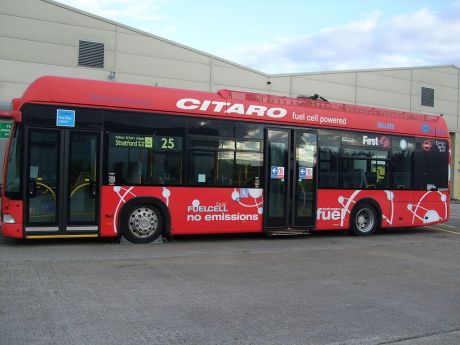Fuel cells are electrochemical energy conversion devices. They convert the energy in chemical bonds into electrical energy with water as the by-product rather than carbon dioxide, promising major impact on emissions and climate change. However, further decreases in cost and/or increases in efficiency are required for widespread market uptake. The EU is supporting the
NANO-CAT (Development of advanced catalysts for PEMFC automotive applications) project to address one of the major barriers to cost reduction.
The PEMFC has two platinum (Pt) electrodes, an anode and a cathode, at which chemical reactions take place facilitated by catalysts. The catalysts speed the reactions and are supported on solid substrates (catalyst supports), typically carbon-based. Studies have suggested that the cost of the catalyst is 25 % of the fuel stack cost.
Pt is a rare and expensive metal. Its cost to the membrane electrode assembly (MEA) can be reduced either by increasing the power density for a given Pt loading or by reducing the Pt loading for a given power density. With less Pt, higher activity or longer lifetimes, the team will have delivered the low-cost alternative to conventional Pt catalysts that the market demands.
NANO-CAT scientists are developing novel nano-structured Pt or even Pt-free (bio-inspired) catalysts to minimise Pt use while enhancing catalytic activity. In addition, the development of innovative degradation-resistant supports made of functionalised carbon nanotubes or conductive metal oxide further reduces the Pt loading required to counter degradation issues.
Within the first reporting period the team deposited commercially available Pt and Pt-based alloy catalysts on novel robust supports created by project scientists. They will be integrated into MEA, cells and stacks to undergo accelerated ageing tests. Further, researchers have already demonstrated improved performance of a novel Pt-free catalyst for both the anode and cathode reactions.
Advanced catalysts for PEMFCs developed within the NANO-CAT project promise to overcome the last major barrier to widespread market uptake of PEMFCs for the transport sector. Targeted at reducing the cost and/or increasing the energy density of the MEAs, the catalysts will encourage fuel cell use with major benefits for manufacturers, the environment and the EU economy.

